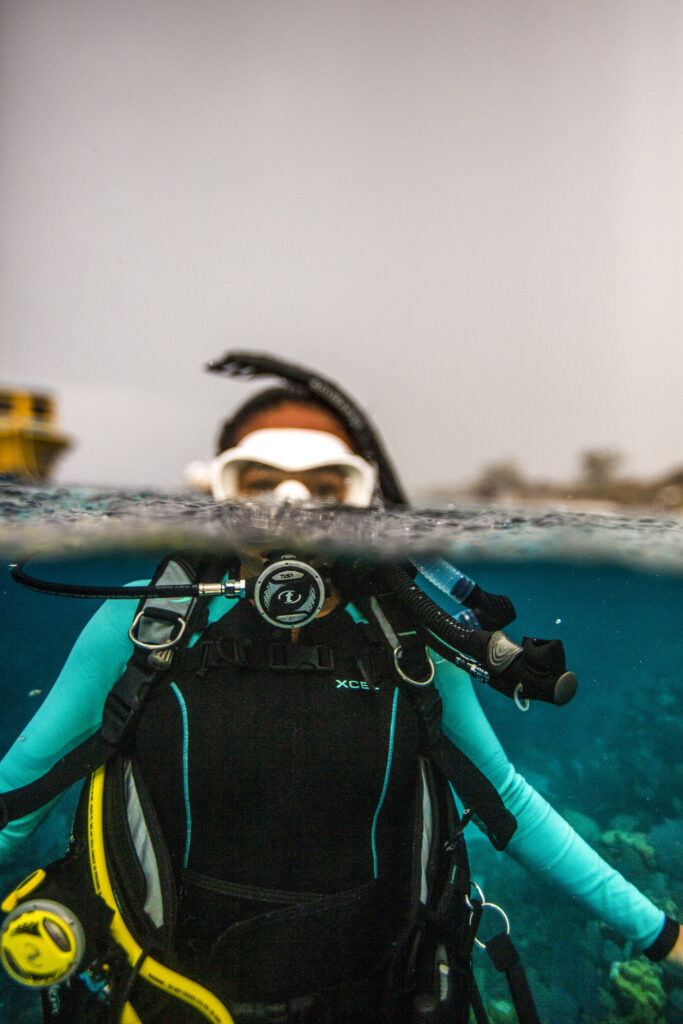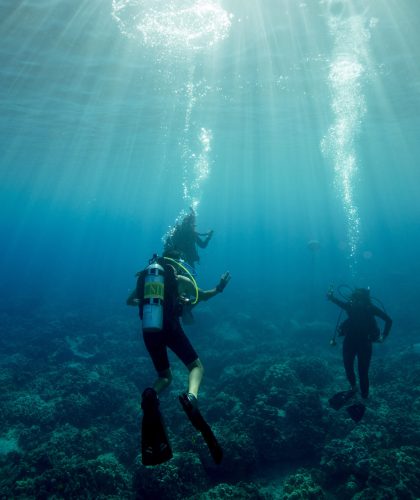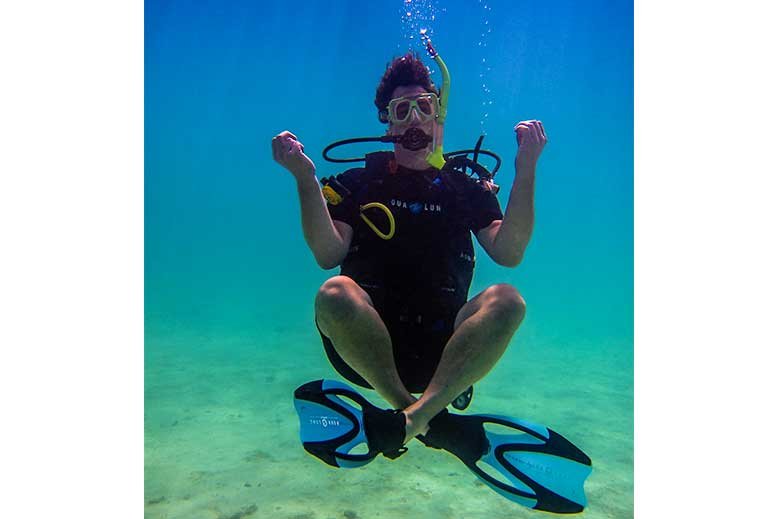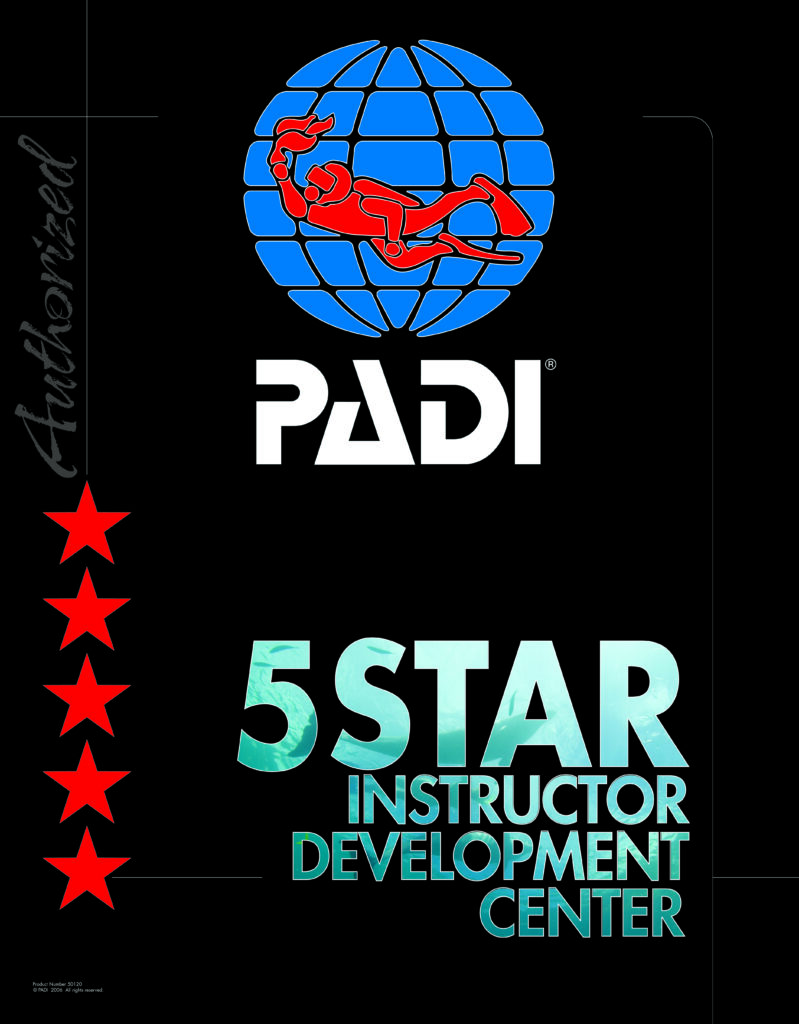Tips for Staying Calm Underwater: Your Guide to Stress-Free Diving
Scuba diving offers a unique and serene experience beneath the waves, but staying calm underwater is crucial for both safety and enjoyment. For beginners and even experienced divers, managing underwater stress is a skill that enhances every dive. Drawing inspiration from trusted resources, and from the experience of our own instructors at Bali Diversity Dive Resort, here are actionable tips to help you stay calm and confident during your underwater adventures.
1. Practice Breathing Techniques
Mastering your breathing is one of the simplest and most effective ways to stay calm underwater.
Why It Matters: Slow, steady breathing reduces your heart rate, conserves air, and prevents feelings of panic.
How to Practice: Before your dive, put one hand on your belly and one hand on your chest. Try breathing by only inflating your belly when inhaling, and deflating it when exhaling, and not moving your chest. This habit will help you stay relaxed underwater. Underwater, you should use your diaphragm to breathe not the top of your chest to ensure calm, slow breathing. This helps reduce carbon dioxide intoxication risks and helps you to finely tune your buoyancy.
Learn more about breathing techniques on our Underwater Breathing Guide or visit PADI Blog: Secrets to a Relaxed Dive for additional tips.
2. Take Your Time to Acclimate
Jumping straight into the water can feel overwhelming. Taking a few moments to adjust can make a big difference.
Why It Matters: Acclimating to the water allows your body and mind to settle before beginning your dive.
How to Practice: Float on the surface for a few minutes and focus on your breathing before descending.
Join our Discover Scuba Diving session to build your confidence and learn proper breathing techniques from the start.


3. Plan Your Dive, Dive Your Plan
Having a solid plan reduces stress and prepares you for the dive ahead.
Why It Matters: Knowing the dive profile, depth, and communication signals keeps you focused and relaxed so listen carefully to the dive briefing given by your dive professional.
How to Practice: Discuss the dive plan thoroughly with your dive professional and/or buddy and stick to it unless changes are necessary.
Learn about dive planning in our PADI Open Water Course.
4. Stay Hydrated and Well-Rested
Physical preparation plays a significant role in staying calm, especially before your first few dives. Your body and mind need to be in optimal condition to adapt to the underwater environment and handle new sensations with ease.
Why It Matters: Dehydration and fatigue can exacerbate feelings of stress and discomfort underwater, making it harder to equalize, control your buoyancy, or stay focused on your breathing. Tired divers are also more prone to anxiety, slower to react, and may struggle to fully enjoy the experience.
How to Practice: Drink plenty of water starting the day before your dive—not just right before. Avoid alcohol and heavy meals the evening prior, and aim for 7–8 hours of sleep to allow your body to recharge. Arrive at the dive center early to avoid rushing and give yourself time to mentally prepare.
5. Focus on the Present Moment
Mindfulness can help you stay grounded and enjoy the experience.
Why It Matters: Observing your surroundings keeps your mind from worrying about what could go wrong.
How to Practice: Pay attention to the beauty of marine life, the rhythm of your breathing, and the gentle flow of water. At Bali Diversity Dive Resort, our favorite tricks are to tell stressed divers to count the fish, count them per colors or even give them names. Keeping your brain occupied on other tasks helps you forget the “what ifs” thoughts you may have. Try that on your next dive.

6. Keep in Touch with Your Buddy
Your dive buddy is a valuable source of reassurance and assistance.
Why It Matters: Staying connected to your buddy ensures mutual support and boosts confidence.
How to Practice: Use hand signals frequently and maintain visual contact. Follow your dive professional advices and stay close to them. Do not hesitate to get their attention if something is wrong. The more challenging the conditions, the closer you want to be from your buddy and dive professional.
Enhance your buddy diving skills with PADI Blog: Hand Signals or visit Divers Alert Network for other recommendations.
7. Start with Simple Dives
Building confidence with easy dives sets a strong foundation for more challenging ones.
Why It Matters: Gradual progression helps you develop skills and avoid unnecessary stress.
How to Practice: Begin with shallow, calm dives and progress to more complex sites as you gain experience.
Amed & Tulamben offer some of the greatest dive conditions for beginners to learn and practice. With shallow reefs & protected bays, calm, warm and clear waters, we have the best conditions in Bali for you to build up on confidence and skills.
Sign up for the PADI Advanced Open Water Course allows you to work on new adventures and challenges underwater under the training and supervision of a PADI Dive Instructor, or explore beginner-friendly options on our website.
No idea where you could try diving for the first time ? Have a look at the best dives sites for beginner divers on PADI Blog.
8. Acknowledge and Manage Anxiety
Feeling nervous is natural, especially for new divers. Addressing these feelings helps maintain control.
Why It Matters: Suppressing anxiety can lead to panic. Recognizing it allows you to take proactive steps to calm yourself.
How to Practice: If anxiety arises, signal your buddy or instructor. Focus on slow breathing and remind yourself of your training. Keep your mind occupied by counting fishes, naming them or other games that may help you relax. Have a look at our blog article 10 Common Mistakes a Beginner Diver should Avoid Making.

9. Trust Your Training
Confidence comes from preparation. Trusting in the skills you’ve learned builds resilience.
Why It Matters: Recalling your training ensures you can respond effectively to unexpected situations.
How to Practice: Regularly review your skills and take refresher courses when needed.
Revisit essential skills in our Refresher Course.
10. Enjoy the Experience
Finally, remind yourself why you started diving: to explore and appreciate the underwater world.
Why It Matters: A positive mindset enhances your experience and keeps you calm
How to Practice: Celebrate small victories, like mastering a skill or spotting fascinating marine life.
Ready to Dive Calmly and Confidently?
Staying calm underwater is a skill that grows with practice. At Bali Diversity Dive Resort, our experienced instructors are dedicated to helping you build confidence and enjoy every dive.
Explore our courses and resources to start your stress-free diving journey today!



